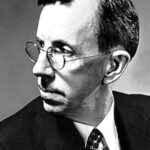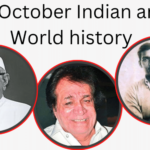John Howard Northrop (5 July 1891 – 27 May 1987) was a distinguished biochemist whose contributions to the field of enzymology revolutionized our understanding of proteins and their functions.
Life and Career
John Howard Northrop was born on 5 July 1891, in Yonkers, New York. He attended Columbia University, where he earned his bachelor’s degree in 1912. Following his undergraduate studies, he remained at Columbia to pursue his Ph.D. in chemistry, which he successfully obtained in 1915.
His groundbreaking work primarily focused on proteins and enzymes. During his time at the Rockefeller Institute for Medical Research (now Rockefeller University), he conducted extensive research on the isolation and crystallization of enzymes, which laid the foundation for further studies in enzymology.
One of Northrop’s most notable achievements was his successful isolation and crystallization of pepsin, an enzyme crucial for the digestion of proteins. This groundbreaking accomplishment opened new avenues for studying the properties and functions of enzymes, leading to a deeper understanding of their role in biological processes.
He continued to make significant contributions to enzymology throughout his career. He extended his research to other enzymes, such as trypsin and chymotrypsin, further advancing our knowledge of protein structure and function.
Northrop’s meticulous experiments and innovative techniques played a pivotal role in unraveling the complex nature of enzymes. His work significantly contributed to the emerging field of biochemistry and laid the groundwork for future studies in enzymology.
John Howard Northrop passed away on 27 May 1987, in Wickenburg, Arizona, United States.
Award and Legacy
In 1946, he was awarded the Nobel Prize in Chemistry alongside James Sumner and Wendell Stanley for their fundamental research on enzymes and virus proteins.
His contributions to science and biochemistry have left a lasting legacy that continues to impact the scientific community. His pioneering work in enzymology and protein crystallization paved the way for groundbreaking research and advancements in the field.
Observer Voice is the one stop site for National, International news, Editor’s Choice, Art/culture contents, Quotes and much more. We also cover historical contents. Historical contents includes World History, Indian History, and what happened today. The website also covers Entertainment across the India and World.
Follow Us on Twitter, Instagram, Facebook, & LinkedIn










